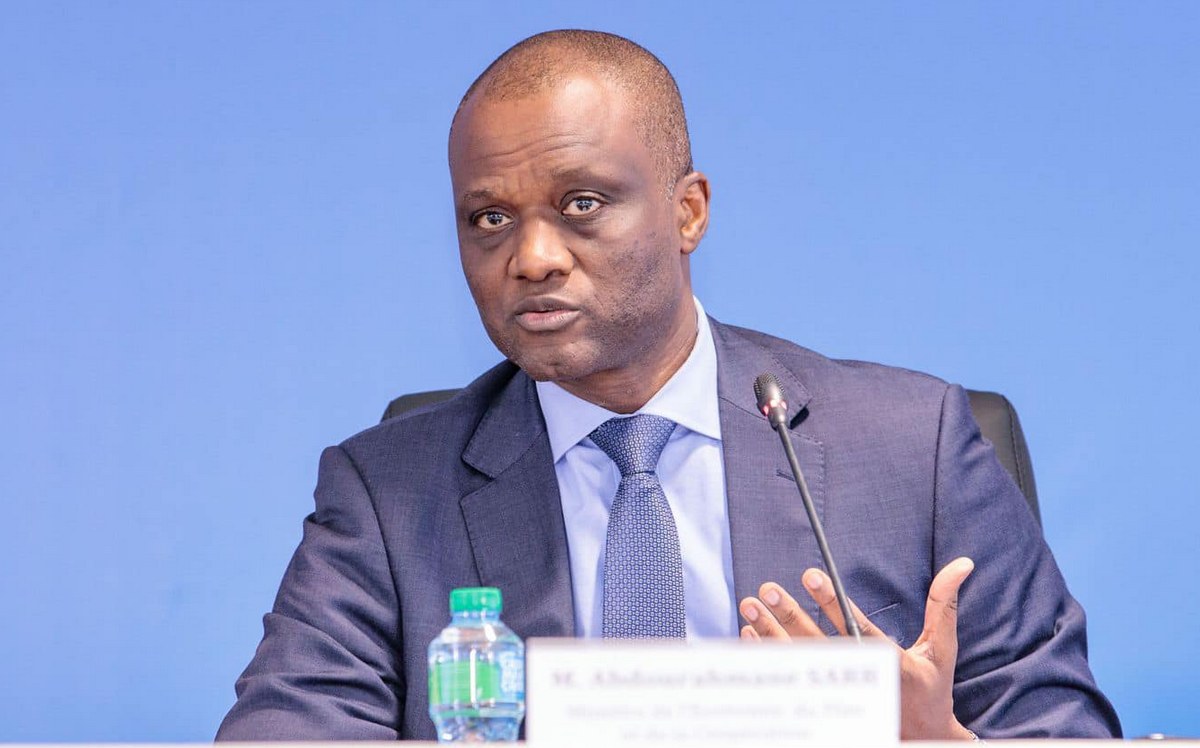Gambiaj.com – (DAKAR, Senegal) – In a landmark press conference on Thursday, Senegal’s Minister of Economy, Planning, and Cooperation, Abdourahmane Sarr, presented a detailed analysis of the country’s fiscal health, revealing serious discrepancies in the reporting of public debt and budget deficits from 2019 to 2023. This initiative, framed as an exercise in transparency, is aimed at restoring public trust and ensuring international accountability.
Sarr pointed out that the public finance audit uncovered significant underestimations in the figures reported by the previous government, led by former President Macky Sall. The minister explained, “The budget deficit was announced at an average of 5.5% of GDP during the period, but in reality, it stood at 10.4%, almost double the communicated figure.” Similarly, public debt was reported at 65.9% of GDP but actually averaged 76.3%, a striking difference attributed to “drawings on pre-projects financed by external resources and loans contracted from local banks in a non-transparent manner.”
Sarr highlighted that the central government’s debt, excluding parapublic sectors, reached 15,664 billion FCFA in 2023, representing 83.7% of GDP, rather than the previously announced 13,272 billion FCFA (73.6%). This added nearly 1,892 billion FCFA to the country’s debt, primarily from undisclosed external financing and non-transparent local bank loans.
The minister was candid about the budget deficit for 2023, which was initially projected at 4.9% of GDP but is expected to reach around 10% when unpublished debts are taken into account. This opaque financial management has complicated Senegal’s relationship with international partners, particularly the International Monetary Fund (IMF). According to Sarr, the overfinancing of Senegal’s treasury, initially meant to fund the 2024 fiscal year, was diverted to cover unbudgeted expenses and debts, forcing the government to take on unscheduled borrowings like Eurobonds and commercial credits.
In light of these revelations, Senegal’s government has postponed the IMF’s scheduled review of its finances, originally slated for June 2024. “Sending inaccurate figures would have constituted a ‘misreporting’ to the IMF,” Sarr explained, adding that this could have required Senegal to repay mobilized funds. The minister assured the public that transparency is now the government’s priority, noting that the IMF has been fully briefed on the audit findings and that discussions are underway to establish corrective measures.
The government aims to bring public finances back on track, either within the framework of the current IMF program or through a new agreement in the near term. Sarr expressed a commitment to reducing the central government debt from 83.7% of GDP in 2023 to below 70%, ensuring fiscal responsibility.
The fiscal crisis has also prompted Prime Minister Ousmane Sonko to voice sharp criticisms of the former administration. Sonko accused the Macky Sall regime of deceiving both the Senegalese public and international partners by manipulating economic data to present a more favorable image. “The regime of President Macky Sall lied to the people, lied to partners, fiddled with the figures,” Sonko declared.
Despite these serious accusations, members of the former ruling party, the Alliance for the Republic (APR), have yet to respond publicly. Attempts to reach APR officials for comment have so far been unsuccessful.
The Senegalese government’s newfound commitment to transparency and accountability will be closely monitored, both domestically and internationally, as it works to restore credibility and stabilize its financial situation.










